Clarence “Gatemouth” Brown is as outspoken as he is talented. The Louisiana-born, Texas-bred, 67-year-old singer and multi-instrumentalist (guitar, violin, viola, mandolin, mandola, harmonica, piano, drums) freely airs his controversial views at the drop of a five-gallon hat – although the one he sports seems a permanently affixed crown of sorts.
“Don’t take offense about me calling you ‘son,’” – says Gate, “because I feel like you’re all my children and you want some knowledge of what I’m doin’ and what other people are not doin’. I’m one of the few that can give it to you straight.”
Such straight – and often straight between the eyes – talk comes from a colorful and paradoxical personality which, like Gate’s music, defies categorization.
Decrying the erosion of morals in American society, and denouncing what he perceives as the toxic effect of television and videos (he clearly does not want his MTV), Brown can sound like one of the preacher-feature televangelists who overpopulate the airwaves.
Yet, in the next breath, between puffs on his pipe, he displays disdain for both the drunken and the devout, professing a belief only “in treatin’ you like I wish you would treat me, and if you don’t, I’m gonna goddamn sure tell you about it.”
Similarly, while he’s received three W.C. HandyAwards (the “blues Grammies”) as well as a 1982 Best Blues Recording Grammy for his Alright Again! album, Brown has a low tolerance for the blues and its continual commingling of misery and misogyny.
Not even such idiomatic heavyweights as Freddie King, Albert King, or the king of Kings, B.B. King, are spared Brown’s criticism, as he explains why the blues give him the blues.
First recording for the Alladin label in 1947, the guitarist extraordinaire subsequently had a succession of hits for the now-legendary Peacock Records, which was founded by Houston club owner and businessman Don Robey expressly as an outlet for the Brown-edged hybrid of blues – country, jazz, swing, and Cajun music.
Now, four-and-a-half decades later, the long, tall Louisianan is back in ‘Gator country, as it were, with No Looking Back, his third album for Alligator Records – a label which specializes in, if Gate will pardon the expression, blues.
I’ve read that you refuse to be pigeonholed or labeled–
“–Yeah, as a blues player. Like I said a million times, when the whites think of blues, they think of the hardcore blues players.
T-Bone Walker – he was a good blues player in his time, but he never grew, simply because he was too negative
“I’ll quiz a lot of DJ’s and ask ‘em what artists come to their minds when they think of the blues, and I can tell ‘em what they’ll say before they answer. For instance, I’ll ask you: who do you think of when you think of the blues?”
Well, a lot of names: T-Bone Walker, Jimmy Reed, the Kings – Albert, Freddie, B.B.
“See, that’s what I’m saying. You vary, but not that much. I don’t play that caliber of blues. That’s what people don’t understand.
“I resent people tellin’ me I sound like a bunch of the hardcore blues players – I don’t, simply because I can’t stand self-pitying or negative music in no form. That goes for country or any other thing.
“Like in Mississippi Delta and Chicago blues, everybody’s crying, ‘Mercy! Help me!’ If it ain’t that, your woman’s no good, you oughta catch her and do this. Or else somebody’s messin’ with your woman. Well, they don’t think much of the ladies, I feel.

“In my eyesight, when they have no woman that they really care for, then everything they gotta say about a woman is negative. Like T-Bone Walker – he was a good blues player in his time, but he never grew, simply because he was too negative.”
Do you enjoy the hardcore blues artists when they’re doing more upbeat songs?
“No, ‘upbeat’ got nothing to do with it. See, it never changes. Even the music is hardcore. No, I don’t go for either one – the fast or the slow.”
I mean “upbeat” in terms of a positive message. I was thinking, for instance, of B.B. King’s Let The Good Times Roll.
“Well no, man. I mean, that’s been rehashed a million years.”
But he does have songs that aren’t negative.
“Well, I want you to try to get me a copy of it. (laughs)”
How about Sweet Little Angel?
“Oh man, come on now. Now, would you want your child to sit up and listen to Sweet Little Angel, with those words poppin’ out there?” (laughs)
I just didn’t know if you were familiar with his stuff or not.
“I’m familiar with all them guys.”
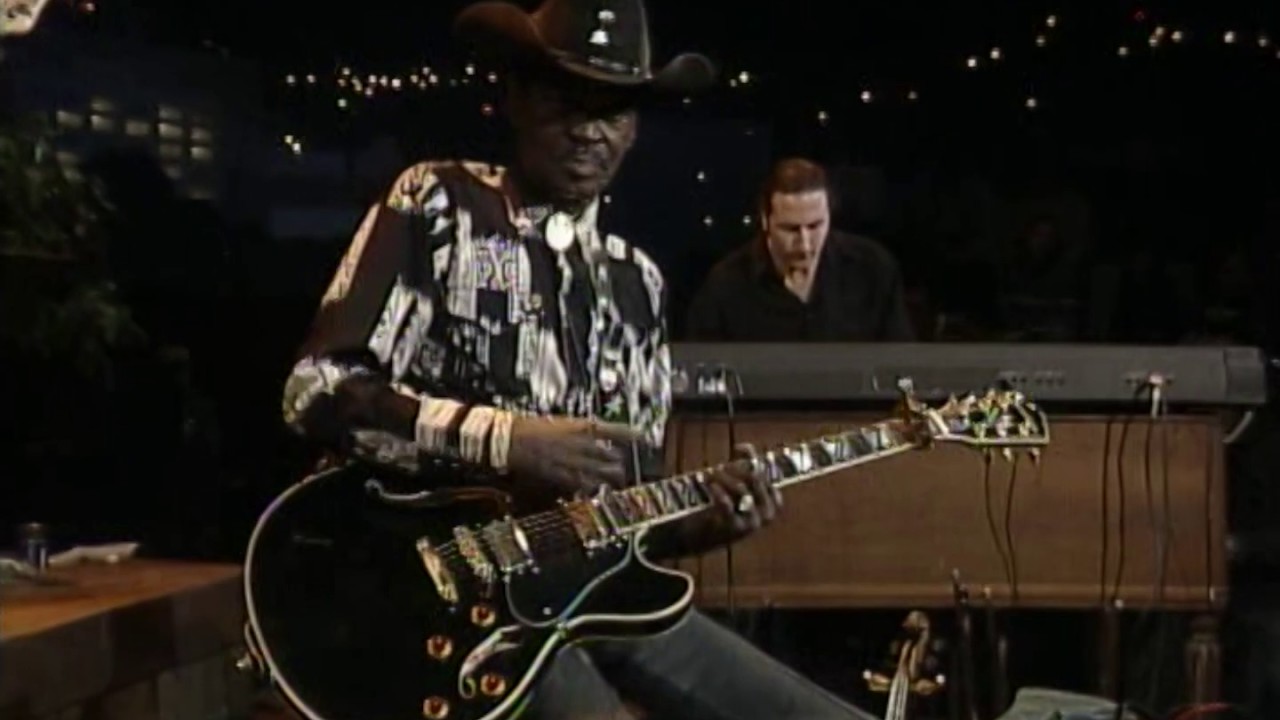
Then you have spent time listening to them in the past?
“No, in the past we all worked in close quarters, and what B.B. did years ago, he hasn’t changed one bit. His band’s changed, but he hasn’t. (laughs) The same thing, the same licks.
“I was sittin’ up the other night and he came on TV, and I wanted to see. And the first thing he did was Lucille. He reared on back, screamin’ like a preacher on a pulpit, and I changed the channel.
Everybody wanna sound like someone, and they pick on poor B.B. King, I guess because he’s the easiest to steal from
“Oh man, come on! Give me a break! To me, he sounds like a Baptist preacher, and I can’t stand religion because that’s the biggest joke to ever hit this country.
“A lot of these gospel people went overseas with me, and they embarrassed me more than any drunk ever could. I mean really embarrassed.”
Are there any guitar players that you enjoy listening to now?
“Son, I really don’t know. I’m sure there’s some that I’d like to hear, but when they tell me, ‘I play blues guitar,’ I don’t wanna hear ‘em. They’re not growing, man. They’re playing the same old thing.
“I’m not a blues player, I’m not a classical player, I’m not a country player, I’m not a jazz player, I’m not a Cajun player – I’m just a musician. And I’ve grown all of my career; none of my albums sound alike. But them hardcore people are always rehashing something.
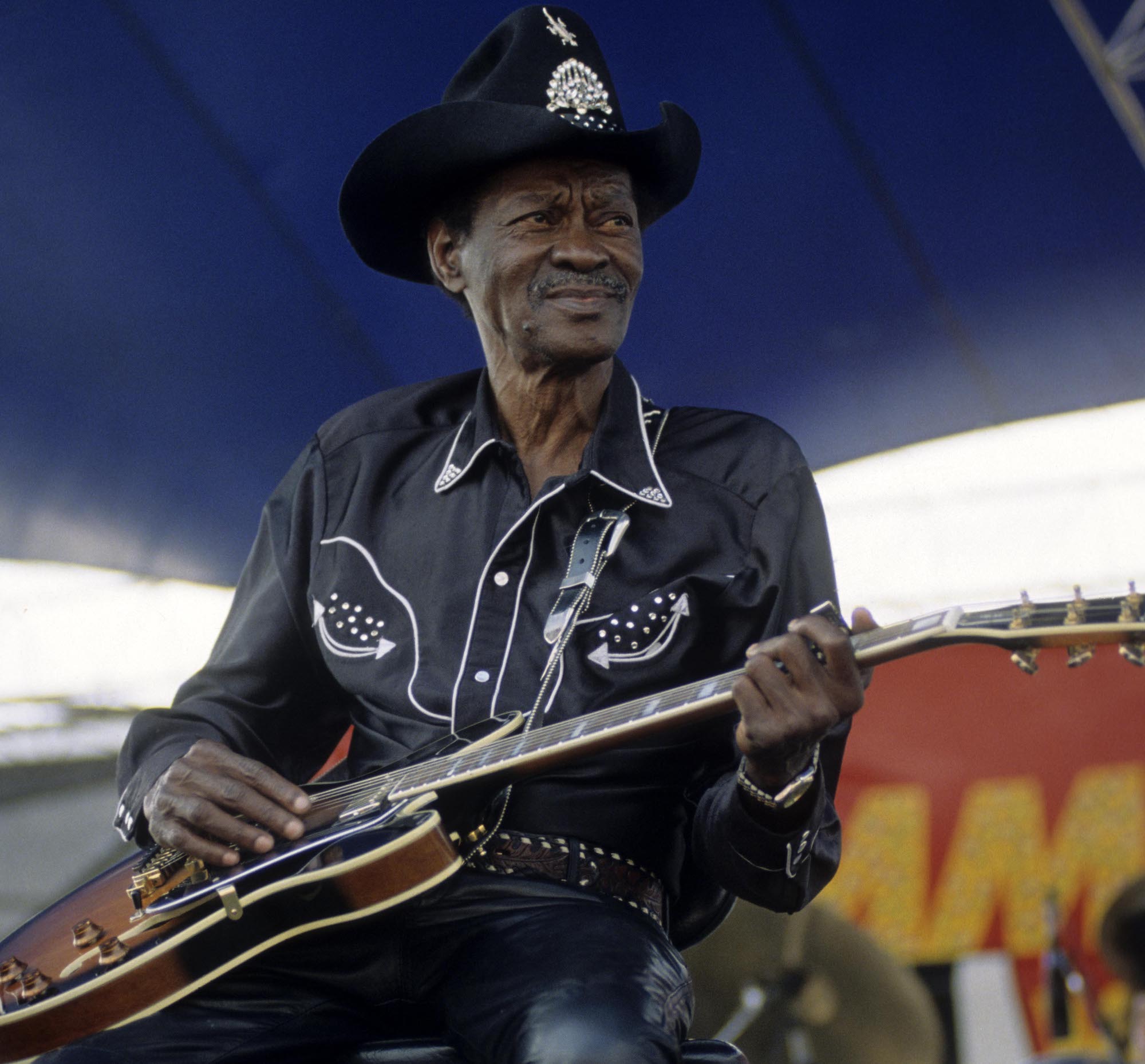
“They might get more harsh or soft with the lyrics, but they have not changed no ideas. And everybody wanna sound like someone, and they pick on poor B.B. King, I guess because he’s the easiest to steal from. They can’t get my stuff ‘cause I’m too complicated.
“Every time I hear a guitar player, he be puttin’ that B.B. lick in everything he do, and that gets pretty sickening.”
But you can appreciate B.B.’s abilities?
“Yeah, yeah – where he’s comin’ from. But like I said, I wouldn’t play it.”
My band knows exactly how I think, because I’ve always told every man, ‘When you get on the bandstand with me, forget whatever lives you lived the day before’
Who were the guitar players you learned from?
“Well, I really didn’t learn from any famous ones. I learned from my father and uncles who was playin’ music. I started trying to play guitar at five. Then I heard other players as I grew up.
“I listened to T-Bone for a while, but after I saw that he wasn’t goin’ anyplace but where he was, I had to go off and leave him at the post.”
You never use a pick. How did you develop that particular style?
“When I started, I didn’t have no picks. The only picks I saw that could be used was the ones I was born with – my fingers. All of my fingers are picks, on both hands. I use ‘em all, depending on what I’m playing.”
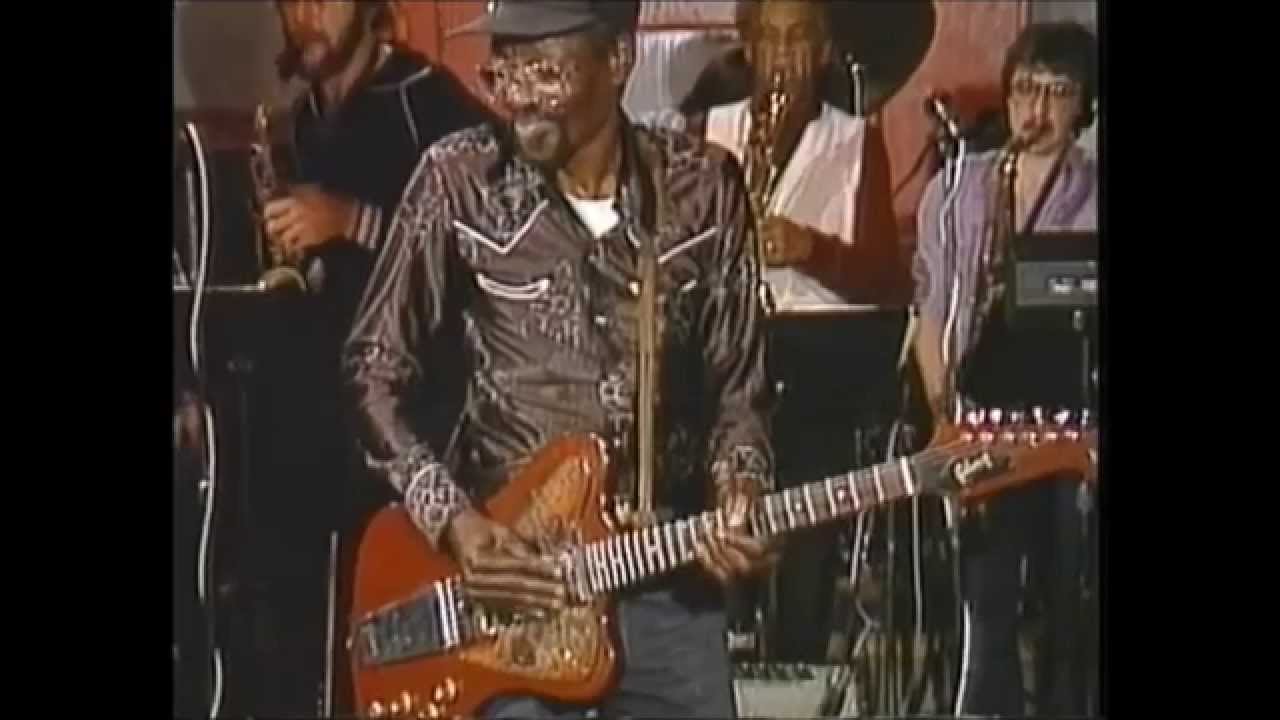
Do you practice guitar when you’re not playing in public?
“No, son. I never pick up my guitar and be playin’.
“When I was a kid trying to learn, I stayed on my instrument. But once I learned, I felt like my music don’t belong to me – it belong to the world. I don’t wanna sit in my room and play by myself. Then I’m not sharing it with no one.”
What can people expect to hear in your live set?
“The best show I ever did anywhere in my life that particular night.”
I believe that. But you’ve got such an eclectic background. What are some of the songs you’re doing now?
“Oh, I don’t know – I don’t have no set list! I’ve got one tune that’s my theme song, which I always open with, called Bits And Pieces. After that, no telling what I’ll play. I just let the energy flow, and the people flow with me.
“I make everybody a part of what I’m doin’, and that’s why my shows are so successful all over the world.”
If you don’t have a set list, how does your band follow you?
“Oh, my band knows exactly how I think, because I’ve always told every man, ‘When you get on the bandstand with me, forget whatever lives you lived the day before. Think of nothing but what you’re doing, watch me, and you can’t go wrong.’ And I got a band that does that.
“Timing is the most important thing in life, man. Anybody that don’t have any timing, I don’t think they have anything. They missed it.
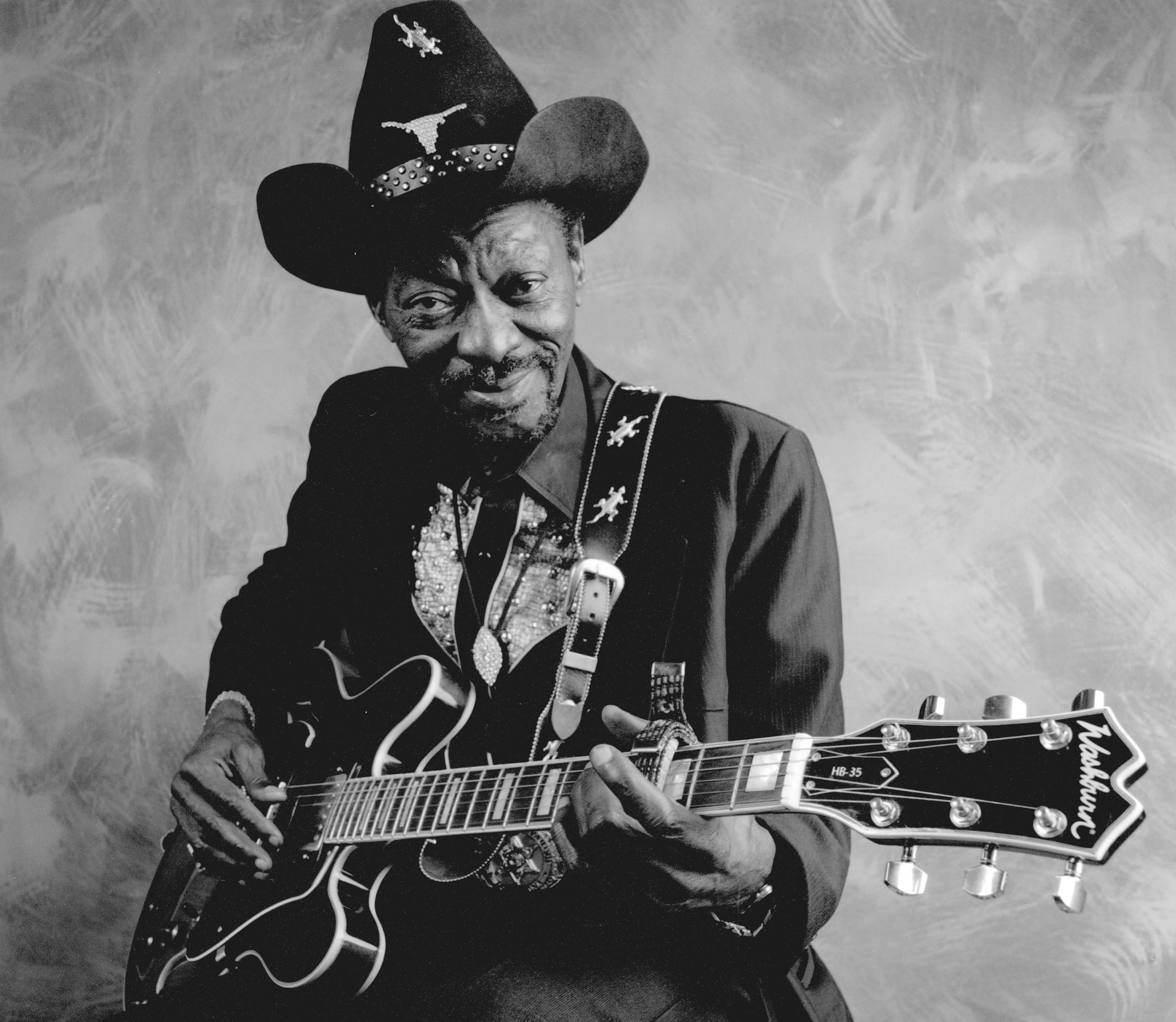
“The secret is, as my band’s announcin’ me, they start playing my opening song. The piano player kicks it off, the rhythm section picks it up, and the horn stands idle ‘till go up. I go into the first horn line, and my horn works right with me, and we sound like an orchestra – just one horn and me – ‘cause I play the horn part.
“I don’t play guitar parts like the blues players you’re thinking of. I don’t care what happens, they gonna sound like a blues guitar all night. You know that, and I know it, son.”
Chuck Berry also says he plays horn parts.
“I have to differ with you on that.”
I’m only going on what he said–
“You listen and that’ll tell you a hell of a lot more than what he said.
“Now let me tell you something: Chuck Berry’s not a very good guitar player. He’s a clown. He runs all over the guitar, just like any one of these old rock players would do, and makes no sense. How could he be sounding like a horn?
“See, Freddie King used to say the same thing, but it was never proven that he sounded like no horn, because he got that from me. When I said it so many times during my career, everybody wanna jump up and say something about what he sound like. These people don’t even know how to explain their music.
“I’ve heard a blues player interviewed and asked, ‘Well, what is the blues?’ You know what he said? ‘A feelin’.’ Oh, good. What a great explanation.”
Well, what is the blues to you?
“Well, it depend on what type of blues you doin’. If you do a hardship blues, I guess that is just a feeling! (laughs) But if you do any blues that make any sense – that people can understand, that isn’t negative – then that type of blues is the kind that you’re not ashamed of.
“Put it this way: I can play blues for your mom and dad right now and I bet you a hundred dollars to a nickel they’ll like it.”
Do you see your influence on a lot of the younger artists?
“That’s what they all say. Everybody says that, but I don’t hear my music comin’ out nowhere. Maybe I give ‘em energy to go on.”
Tell me about the songs on your new album.
“Well, I wrote two of them when I was angry at my wife. We’re not divorced, but we live in separate places. I don’t like big cities, so I’m livin’ between a small town and a lake in a town they call Slidell, Louisiana. I got a redneck on each side, and I like it like that. My wife and 12-year-old daughter live in our big house in Baton Rouge, and I go there when I get ready.
“One night I called and my wife and daughter was gone. I got her answer phone. I hate the damn things, and I got so pissed that I sat down at my typewriter and wrote You Better Straighten Up. And then I wrote another tune, I Built My Own Prison. It’s nothin’ negative, but it’s the truth, man.”
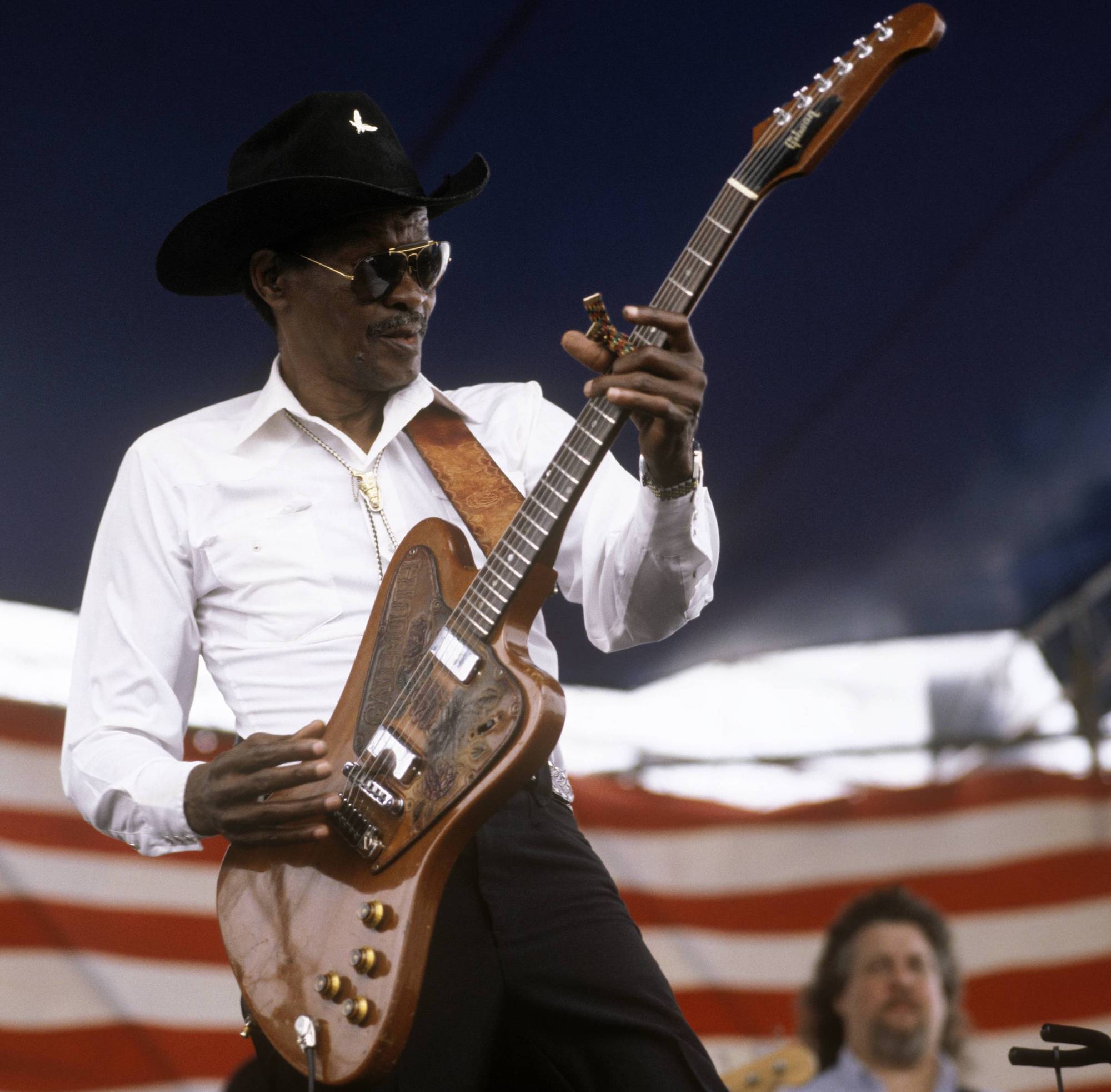
You meet with a lot of your fans after your shows. Do you enjoy that?
“I’m not a butthole, period. I’ll talk to anybody as long as they’re not drunk or acting the fool or prejudiced.
“See, I can’t stand people drinkin’, ‘cause they get on my nerves. We have nothing in common. And they’re very ignorant when they drink.
“I’ve been here 67 years so far, and I’ve seen guys five, six, seven years younger than me completely worn out. Because, for one thing, those who play them hardcore blues are often heavy drinkers or heavy drug users. They got a lot of problems. I don’t have any problems – not nothin’ that’s gonna harm me. My patience is very short with a fool, a drunk or somebody like that.”
Who are some of the people whose music you do enjoy listening to?
“Frankly speaking, I don’t hardly listen. I’ve been around long enough to hear all kinds of music, and there’s a lot I wouldn’t give a dime for a truckload of. If the music’s played all screwed-up, like some of the way-out jazz, I don’t want that either.
“I don’t like the real modern music, because it’s not music at all. All these kids are doing is jumpin’ around like a chicken with his head cut off and mumbling. I mean, it has nothing to do with music. What they show me nowadays is sex, dancin’, and ugly faces.
“I’m being kind of hard, but it’s the truth, man. I feel like if somebody don’t talk up, our world is gonna be lost musically.
“We’ve already lost a lot of our morals. I’ll be watchin’ a child’s show, and a commercial will come on with some guy mountin’ a broad and kissin’ and all. I mean, that’s disgusting to me. Very disgusting.”
Do you see any hope?
“There’s one hope: stop supporting garbage. This MTV is one of the worst things I’ve ever seen, man. The whole system has broken down. And all these rap guys – they oughta take ‘em out and do somethin’ bad to ‘em. Just bad!
“The whites have picked up on the rap now. They even done picked up on it in Russia! I mean, it’s a disease, man! A deadly disease!
“I’m just tellin’ the world what I see, and if everybody would do that, and not lie about it or cut nobody down that don’t deserve to be, then maybe things would come to some kind of straightenin’ out.”
This article first appeared in the November 1992 issue of Guitar World. Subscribe and save.
GIPHY App Key not set. Please check settings